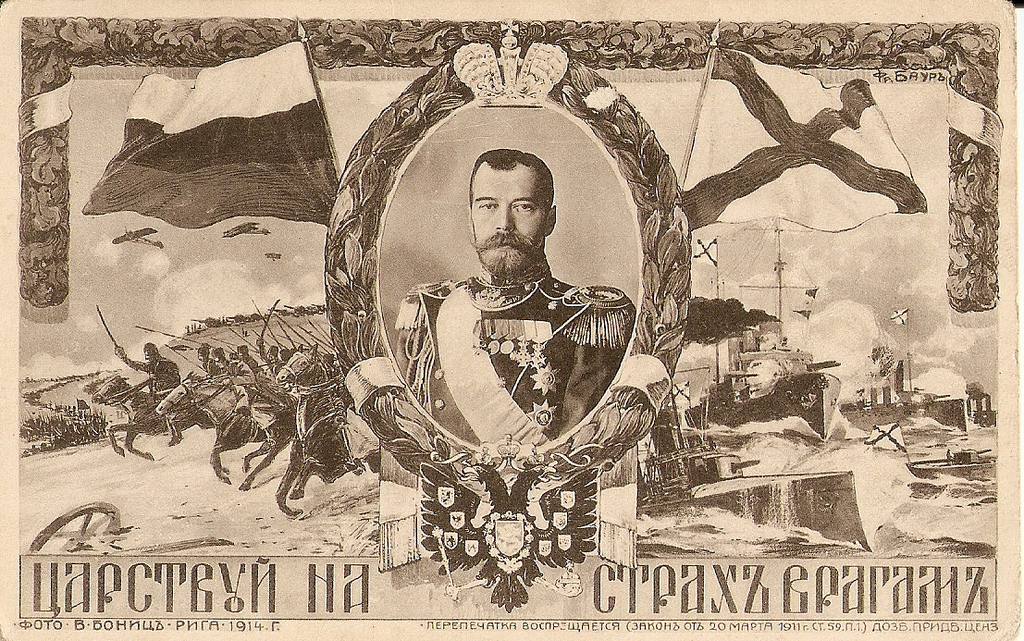The corporate media presents Russia as militaristic but ignores Canada’s invasion of that country.
One hundred years ago a popular revolt ousted the Russian monarchy. Enraged at Nicholas II’s brutality and the horror of the First World War, protests and strikes swept the capital of Petrograd (Saint Petersburg). Within a week the czar abdicated. Later in the year the Bolsheviks rose to power in large part by committing to withdraw from the war.
The English, French and U.S. responded to the Bolsheviks’ rise by supporting the Russian monarchists (the White movement) in their fight to maintain power. Six thousand Canadian troops also invaded. According to Roy Maclaren in Canadians in Russia, 1918 – 1919, Canadian gunners won “a vicious reputation amongst the Bolsheviks for the calm skill with which they used shrapnel as a short-range weapon against foot soldiers.”
While a Canadian naval vessel supported the White Russians, Canadian pilots stationed near the Black Sea provided air support.
The war against the Bolsheviks was initially justified as a way to reopen the First World War’s eastern front (the Bolsheviks signed a peace treaty with Germany). Canadian troops, however, stayed after the war ended. In fact, 2,700 Canadian troops arrived in the eastern city of Vladivostok on January 5, 1919, two months after the war’s conclusion. A total of 3,800 Canadian troops, as well as Royal Northwest Mounted Police and 697 horses, went to Siberia, which the Whites continued to control long after losing Moscow, St. Petersburg and most of the western part of the country.
Ottawa maintained its forces in Russia after the conclusion of the First World War partly to persuade the British that Canada merited inclusion in the Paris peace conference that would divvy up the spoils of the war. Prime Minister Borden wrote:
“We shall stand in an unfortunate position unless we proceed with Siberia expedition. We made definite arrangements with the British government on which they have relied … Canada’s present position and prestige would be singularly impaired by deliberate withdrawal.”
Ottawa also feared the rise of anti-capitalism. On December 1, 1918, Borden wrote in his diary that he was “struck with the progress of Bolshevism in European countries.” For their part, Canadian working-class groups condemned the invasion of Russia as “for the benefit of the capitalist.” The president of the B.C. Federation of Labour Joseph Naylor asked, “is it not high time that the workers of the Western world take action similar to that of the Russian Bolsheviki and dispose of their masters as those brave Russians are now doing?”
The allies invaded Russia to defend the status quo, much to the dismay of many Canadians who welcomed the czar’s demise and found it difficult to understand why Canada would support Russian reactionaries. Opposition to the intervention was widespread even among soldiers. According to the Toronto Globe, 60-70 per cent of the men sent to Siberia went unwillingly. One artillery section even refused to obey orders.
Throughout the 1920s and 1930s western countries worked to isolate Moscow. Canada (and the U.S.) opposed a treaty to guarantee Russia’s pre-war frontiers, which England had signed with Moscow. Ottawa recognized the Bolshevik government in 1924 but ties were severed after the British cut off relations in mid-1927. Full diplomatic relations with Moscow would not restart until the late 1930s.
Russophobia has once again gripped the political/media establishment. A number of prominent commentators have defended the grandfather of Foreign Minister Chrystia Freeland collaborating with the Nazis on the grounds it was either them or the Russians occupying Ukraine during the Second World War. Freeland herself deflected questions on the matter by saying Moscow may be trying to “destabilize” Canadian democracy while Brigadier General Paul Rutherford warned of Russian cyber warfare. More dangerous, Ottawa is ramping up its military presence on Russia’s doorstep (Ukraine, Poland and Latvia) to counter “aggression.”
To help clear the thick fog of propaganda it’s useful to remember how Canada responded to the fall of Russia’s monarchy. While Russia has never invaded Canada, we once invaded their country.
Image: OlestC/flickr




